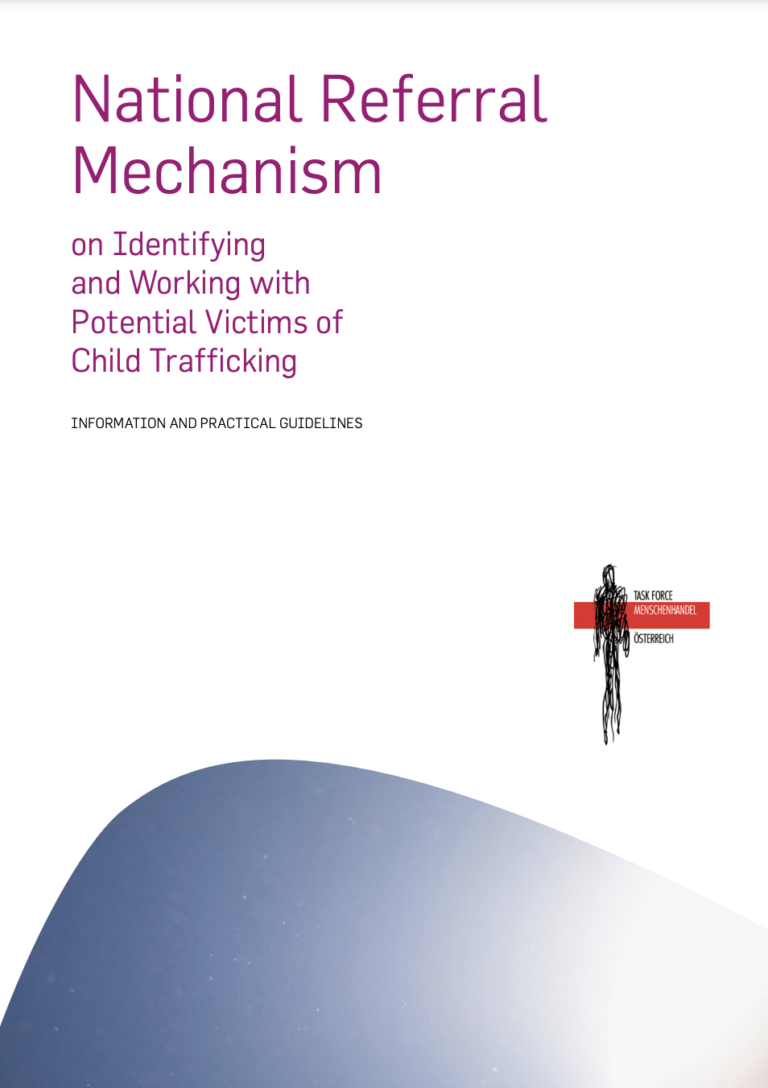Since its establishment in 2007, the Working Group on Child Trafficking as a sub-group of the Task Force on Combating Human Trafficking has been working to gather background information on the phenomenon of child trafficking in Austria through the exchange of experiences and to raise awareness to improve the identification of and correct interaction with victims of child trafficking.
The identification of possible victims of child trafficking and the provision of care to them still present a serious challenge to relevant professionals. According to the experience of the DREHSCHEIBE, a centre for unaccompanied foreign minors of the City of Vienna, child victims still do not receive the assistance they are entitled to, particularly as victims are often not identified as such.
In order to counteract this phenomenon, an attempt was made in the framework of the Working Group on Child Trafficking – building on the groundwork laid by the Round Table of NGOs against Child Trafficking – to make recommendations available to relevant professionals. The aim was on the one hand to facilitate the identification of victims of child trafficking through standardised procedures and on the other hand to provide guidance on how to proceed in such situations.
The annexes contain schematically depicted “procedures for action” for relevant professionals that aim to provide orientation for a prompt intervention upon the initial suspicion of child trafficking. This section illustrates procedures, recommends forms of cooperation and describes the respective responsibilities based on different scenarios.
The primary objective of this NRM is to provide victims access to the necessary assistance and to lay the foundation for investigations against the perpetrators.

